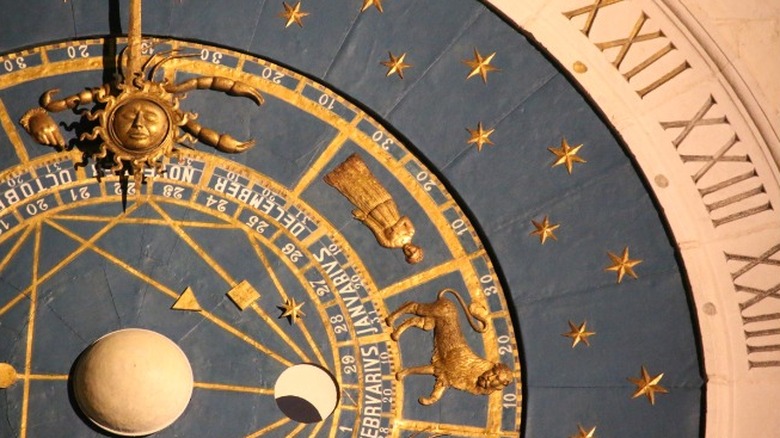Here's What Would Happen If Leap Years Weren't A Thing
Every four years, the powers that be add an extra 24 hours to the year. But why? And what would happen if they didn't?
Calendars are human creations, it so happens, which neither govern time nor measure its movements flawlessly. For nearly every civilization in human history there has been a different method of telling time, and every culture has its own calendar. From the French Revolutionary Calendar's 10-day weeks to the Egyptian calendar's three 120-day seasons, each calendar method calculates the passage of time a little bit differently, but all of them work.
The modern Western calendar used today is called the Gregorian (or New Style) Calendar, rolled out by Pope Gregory XIII in 1582 as a new-and-improved reboot of the Julian (or Old Style) Calendar, which originated under its namesake Julius Caesar during the Roman Empire. For most of the year, our calendar does a great job providing a steady metered basis to monitor the passage of time and seasons. However, it's not perfect — every four years, the Gregorian calendar requires the addition of an extra day to keep things on track. We call those years Leap Years. They're not the only theoretical method we could use to modulate time, but without them, things would get pretty confusing. How do they work?
Each year would be six hours short
For starters, our 365-day year doesn't precisely line up with the Earth's orbit of the sun. According to NASA, the Earth fully completes one solar revolution every 365.25 days. You can probably figure out the rest: every four years, we have a full extra 24-hour-day (when 0.25 is multiplied by 4), and that difference is corrected with the addition of a quadrennial Leap Day. Theoretically, this sets things right back in sync.
But what would happen without one? Let's pretend you were born in the year 2000 and the moment you entered the mortal sphere, time began and calendars first entered into effect that very day. Now let's say that since the dawn of your particular universe of time, no leap years have been added and none will be. According to this math, we'd already be well on our way to seasons slipping out of their preordained time spans within just the two decades that have passed since the new millennium began. Why?
Over Time, the Year Would Grow Shorter Ad Infinitum Indefinitely
Without the addition of a quadrennial Leap Day, we'd lose about six hours of time on an annual basis (via KWTX). Over two decades this difference might not be too disastrous, but over 10 decades? After a century of no Leap Days in our lives, the calendar would be 24 full days shorter — that's the disappearance of almost an entire month. This poses all kinds of administrative problems when it comes to time-keeping: our seasons would fluctuate even more drastically than they currently do with climate change, which could make it difficult to plan the proper time for planting crops, mapping out when to hold political elections, calculating our distance from events in history, and even tracking our own ages as we write the future's history right now in real time. In brief, without Leap Days, things might seem pretty adequate at first, but they'd quickly slip into an unreliable sludge of gradual progression that just isn't practical for charting the course of events in human life.
Until we invent a better system and all decide to simultaneously adopt it, for now we get to enjoy the gift of one extra, totally invented day every four years — to remind us how arbitrary all things are, even time, and that it's moments, not calendars, by which we can measure our existence.


